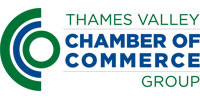If you want your small business to look professional in its branding, packaging, marketing materials and online, it’s worth hiring a freelance graphic designer. Rachel Miller explains how to find the right designer for your needs
With the right software, many small business owners can and do produce their own marketing materials, packaging and branding. So why employ a graphic designer?
There are three main reasons why it can pay to hire a professional designer. Firstly, graphic design is a specialist skill and a good design will be more effective than an amateur effort. The second reason is time. Trained designers can produce great layouts and graphics quickly and they know the software intimately. Do you really want to spend hours trying to position a picture when you could be getting on with more important jobs?
Thirdly, good design - especially logos, branding, websites and corporate identities - are crucial for your business. It's vital to get key visual elements right, because a shoddy look, frequent changes or inconsistency can make your business look unprofessional.
Finding a graphic designer
There are two options when it comes to buying in design skills. You can go to an agency or you can look for a freelance designer. A freelance designer is usually best placed to offer a professional job for a reasonable fee. However, with an individual, you are putting all your eggs in one basket so it's vital you choose the right person for the job.
Successful agencies have earned their reputation thanks to the quality of the work they produce. While they may be more expensive, it's worth asking them if they can work within your budget.
To find a designer or agency in your area, start by asking around for word of mouth recommendations. All good designers and agencies will have websites that showcase their work so it's a good idea to search online for a designer in your local area. Alternatively, search for designers on a freelance job site such as Upwork, PeoplePerHour, Fiverr or YunoJuno.
Checking your designer's credentials
Ask everyone on your shortlist for examples of their work. Also ask if it's okay that you contact previous clients to verify the quality of their work and check reliability. Any designer or agency worth their salt will have no problem providing testimonials and references.
Interviewing and pitches
At the interview, ask the designer or agency to present their previous work to you so you can find out more about how they respond to a brief. If you are meeting an agency, find out who you would be working with - it may well be someone more junior than the people who attend the meeting. When budgets are small, not all designers will be prepared to present concepts at the pitching stage. You can ask for some initial reactions to your brief but don't expect a full-blown creative strategy before you agree to work with them.
What makes a good designer?
- A strong portfolio.
- A good understanding of marketing. Good design is not just decorative - it communicates and motivates. Designers should be able to tell you how their work has produced tangible results.
- Business skills. A designer must be focused on your needs and make the best use of your time and money.
- Qualifications. Graphic design is not just about software skills, it is a craft. Make sure the designer you hire has the appropriate expertise.
- Someone you can work with. Finding a good fit is important to ensure you have a productive working relationship.
How much should I pay for a designer?
Give everyone the same brief so you can compare quotes. But when you make your decision, don't just go for the cheapest option. It is also important to understand what you are getting for your money. Ask about the following:
- Will the designer provide more than one solution, so you have a choice?
- Does the budget allow for amendments?
- How does the fee break down into design, artwork, print and agency fee? Is it negotiable?
- How competitive are the printing costs? Can you shop around for a better printing deal?
- Does the fee cover costs such as couriers?
Agreeing schedules
Missed deadlines can be incredibly frustrating and may even be damaging for your business. So it's important to agree timescales up front. Always make sure that enough time has been allowed for the design process and also for checking and sign-off. Avoid rush jobs at all costs - any overtime may cost you more. Ask the prospective designer about their timekeeping and reliability.
Briefing the designer
The more information you give a designer, the better the final product is likely to be. Tell them everything about your business:
- the target market
- your objectives and goals
- your marketing strategy
- the USPs of your products and services
- key elements of your brand
- your marketing messages
- your ecommerce strategy
- the important calls to action
